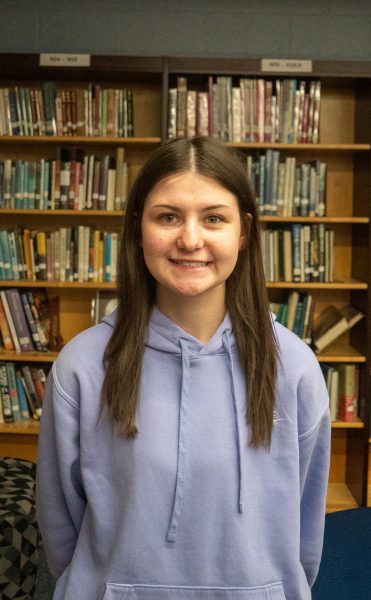
In the Adkins household, communication works in many ways. Three hearing teenagers with two parents. One hearing mother and a deaf father. Our normal conversations involve speaking while translating into American Sign Language (ASL) for my dad. My mom ended up using this for her career.
When people think of being bilingual, they think of speaking in two lansguages.
For my family, we speak one language and interpret it. We receive many stares from strangers and many questioning faces. This uninviting attitude has brought struggles with comfort in public.
ASL is used for deaf and hard-of-hearing individuals. Accessibility is important in public settings as well as personal interactions. Many think accessibility would be to learn the language, but finding ways to communicate is not difficult.
Multiple ways that you can communicate could be through a notes app, or a pen and paper. Taking the time to interact with the deaf or hard of hearing is appreciated. The added expense of communication is inconvenient for hearing individuals.
My siblings and I learned ASL through our parents, as well as through YouTube videos made for teaching younger kids ASL. My mom learned basic signs through a book, and through my dad, she continued to socialize with people who used signs all the time to help her become more confident.
Surrounding with people who are fluent in that language helps practice having a normal speed conversation. Another resource to use is online or in-person classes.
The three Adkins siblings grew up with the added responsibility of being our dad’s interpreters when the hired interpreter did not meet satisfaction in stores, doctors’ offices, restaurants, and anywhere else you could think of.
This was not international of him but with a single dad and little respect from the public, it was easy for my siblings and I to fall victim to this.
For me, this was one of the most stressful aspects of being a kid of a deaf adult.
My dad grew up deaf in an all-hearing household.
“My biggest challenge is when people lack respect for my language and leave me out because interpreting isn’t convenient for them,” My dad Anthony Adkins said.
There is an absence of approaching a deaf person directly, as well as including them in conversations because of the language barrier. A lot of society would say that they would be scared to communicate wrong. Tying and failing to communicate correctly feels a lot better than being left out completely.
The struggle of these mean glares does not overpower the many joys that being bilingual has. Our family has chosen to take a look at the brighter side of things rather than the harder moments. Opportunities can even come up in your life that you may never realize. Many different career paths help accessibility and there is a chance to meet new people and help others feel as if they belong.
Our family and its unique aspects have made us stand out. Not every day do families experience the life we live or the hardships that occur, despite the negativity we have added these experiences to a lifelong list of advocacy for the deaf community. The deaf community has been denied their necessities countless times. My parents have both taken this into account when choosing their career paths.
“Learning a second language put me in a career that I didn’t think I would be in today. I never knew this was how I would make my living,” My mom Amy Adkins said.
My mom is currently an ASL interpreter for the University of Cincinnati.
My mom’s job lets her travel around music festivals and meet different artists with other interpreters, who have become her best friends over the years.
My dad turned his life experiences to helping other deaf and hard-of-hearing individuals get the help they need with addiction services. He sets their interpreters up as well as provides them with education about the consequences of addiction through a program called “The Dinner Table Project”
A kid of a deaf adult (KODA) is a beautiful thing that my siblings and I experience. We can advocate for the deaf community by interacting with it firsthand. Our experiences are shared with other kids who we go to summer camp with.
KODA camp is a way for us to share our experiences that other kids don’t experience such as home signs, struggles, advantages, and many stories. This camp has given the three of us life-long friendships.
Knowing American Sign Language has brought an interesting light to my experiences growing up. American Sign Language has made my family and I unique and it is a skill that the Adkins cherish.




Lexi Zins • Feb 13, 2025 at 5:37 pm
this was so amazing liv
Abby Adkins • Feb 13, 2025 at 11:16 am
Great read!